NOTE: The following is a digest of a full article first published on Frank Report.

READ THE FULL FRANK REPORT ARTICLE
By Richard Luthmann
On August 14, 2024, Connecticut Superior Court Judge Erika Tindill caused a public outcry by jailing Nishani Naidoo, a Harvard graduate and corporate lawyer, for failing to pay a $37,512.50 court-ordered fee to her ex-husband’s attorney, Gary I. Cohen. Despite being the sole caregiver for two young children, Naidoo was incarcerated after pleading for more time, making her case a focal point for criticism of family court practices, especially the growing use of jail time to enforce financial judgments.
Naidoo's case is not just about one mother's struggle; it sheds light on a deeper issue within the U.S. judicial system, particularly in family courts where judges hold unchecked power to jail individuals over unpaid debts. This practice, many thought, had been abolished nearly two centuries ago.
"Family Court Judges like Erika Tindill act like seventeenth-century debt collectors with robes," said Peter Syzmonik, a legal and parent’s rights advocate. "The use of modern-day debtor’s prison needs to stop."
Judge Tindill’s decision followed Naidoo’s inability to meet a May 1, 2024, deadline to pay Cohen. The court had granted her full custody of her children and decreed the sale of a rental property to cover her financial obligations. However, delays in the property sale left Naidoo unable to pay Cohen on time. Despite her offer to make a partial payment, and even her ex-husband's plea not to jail her, Judge Tindill remained unmoved.
“A judge is supposed to protect the best interests of children, but instead, this one is destroying a family," her ex-husband, Vipul R. Kumar, said.
This case has sparked comparisons to the era of debtor's prisons, abolished in 1833, during President Andrew Jackson’s presidency, as a practice deemed an affront to fundamental rights.
"The personal liberty of the citizen seems too sacred to be held, as in many cases it now is, at the will of a creditor to whom he is willing to surrender all the means he has of discharging his debt," said Old Hickory in his Third Annual Message, delivered December 6, 1831.
The American Civil Liberties Union (ACLU) has been vocal about the resurgence of debt-related incarcerations in modern America. In its report, "A Pound of Flesh: The Criminalization of Private Debt," the ACLU details how thousands of Americans are jailed each year over unpaid debts. Judges regularly issue arrest warrants for those unable to comply with payment orders, effectively turning the court system and incarceration into a tool for civil debt collection.
Legal experts argue that cases like Naidoo’s demonstrate the urgent need for judicial reform. Critics point out that the unchecked authority of judges in family courts often leads to unfair outcomes, particularly when one party is already financially drained from the divorce process.
"Judges like Erika Tindill are acting outside the reach of regulation and punishment," said one Connecticut attorney. "Their actions are not just punitive; they smack of treason against the fundamental rights of life, liberty, and the pursuit of happiness."
Naidoo’s case is one of many that reveal a broader pattern of family court corruption and abuse. It is but one of many.
Guy Simonetti, a retired NYPD detective and 9/11 responder, was embroiled in a legal battle under the supervision of New York Divorce Court Justice Ronald Castorina. Simonetti’s case is a textbook example of the heavy-handed tactics employed in family courts, where judges have the power to impose debtor's prison for unpaid legal fees.
INJUSTICE CASTORINA: Staten Island Judge's Ruthless Ruling Threatens Disabled NYPD Detective’s Future
By Dick LaFontaine and M. Thomas Nast
Despite Simonetti’s health struggles as a result of his service during the 9/11 rescue operations, Castorina threatened to imprison him over his inability to pay attorneys' fees, escalating the court’s role from arbiter of justice to debt collector.
The retired detective has expressed deep frustration and despair over the court’s treatment.
"I dedicated my life to protecting this city, and now I’m being treated like a criminal for not being able to pay a lawyer," Simonetti said.
Critics of Castorina’s rulings argue that the judge's actions are not only unjust but also cruel.
"This isn't justice; it's extortion," said a legal expert familiar with the case.
The case sheds light on the judicial overreach in family courts and raises concerns about how courts prioritize financial penalties over human welfare.
Wall Street financier David Weigel’s experience with New York State Supreme Court Justice Tandra Dawson also highlights the draconian practices some family courts employ. Weigel, a successful fiduciary asset manager, found himself at the mercy of a system that, according to him, completely disregarded his financial reality.
"Your legal obligation to pay has no relationship to your economic ability to pay," Weigel stated in frustration after being jailed over a financial dispute in his divorce case.
He compared the court’s practices to "financial fraud," saying, "In my business, that's called financial fraud. In family court, it's called a Decision and Order, the hammer of the racketeering business model."
Weigel’s troubles began when a paperwork error led to a court order that sent him to Rikers Island for a weekend. The mishap occurred while his matrimonial matter was pending before Justice Dawson, who, according to attorney Daniel B. Nottes, was alleged to be called the "Bill Cosby of Family Court Judges."

Weigel’s case has highlighted the extent to which family courts can exert financial and legal pressure on individuals, often with devastating consequences including the loss of liberty and incarceration.
Dr. Luigi DiRubba, a respected chiropractor from Cheshire, Connecticut, saw his life unravel after being targeted by what he describes as "Silver Bullet" false accusations in his divorce case. Despite being a father of six and running a thriving business, DiRubba’s ex-wife, Annamaria Mongillo, made multiple allegations against him, leading to seven arrests.
CT Family Court Condones "Bogus" Abuse of Process, Local Chiropractor Says
Dr. Luigi DiRubba, a well-known Connecticut chiropractor and father of six, filed an appeal with the Appellate Court earlier this month. He seeks to have Judge Jane Kupson Grossman’s December 2022 Order denying reunification with his children thrown out based on a slew of legal defects.
"None of the charges stuck, but that didn’t stop them from destroying my life," DiRubba lamented.
His ex-wife’s attorney, Marianne Charles, was accused of manipulating the family court system to pursue these allegations, which DiRubba believes were aimed at gaining a financial advantage.
"The irony is, in criminal court, I had rights. Now, with family court debtor's prison, they can throw you away for weeks or months, and you have no recourse," DiRubba explained, reflecting on the difference in legal protections between criminal and family court.
His case underscores the vulnerabilities that individuals face in family court, where unfounded accusations can lead to severe consequences, including loss of liberty and financial ruin.
The issue of family court abuses has garnered national attention, particularly in cities like New York, where controversial rulings have led to the imprisonment of parents over civil contempt orders.
Investigative reports, like those by NBC4 NY’s Sarah Wallace, have uncovered corruption and misconduct among judges, such as New York State Supreme Court Justice Kathleen C. Waterman-Marshall.
The devastating impact on families is one of the most troubling aspects of these judicial decisions. Naidoo, who lost her six-figure job as a corporate lawyer after her arrest, is now unable to care for her children.
"Judges are supposed to protect families, not tear them apart," said Jill Jones Soderman, the Executive Director of the Foundation for the Child Victims of the Family Courts (FCVFC). She is a vocal critic of the family court system, which she believes is rife with corruption and exploitation.
"Judges are not just arbiters of justice; they’ve become bill collectors for court-appointed minions who prey on vulnerable families," Soderman said, describing the systemic issues she encounters daily in her work.
The FCVFC, under Soderman’s leadership, has taken on numerous cases where families have been torn apart by what she calls "judicial treason." One of the foundation’s primary concerns is the role of court-appointed professionals—guardians ad litem, therapists, and attorneys—who, Soderman argues, are more interested in generating fees than protecting children’s best interests.
"Court-appointed therapists and guardians ad litem are creating chaos, pitting families against each other while profiting from the destruction they cause," Soderman explained.
She has also criticized the financial incentives tied to federal funding streams, such as Title IV-D and the Violence Against Women Act (VAWA), which she believes encourage courts to prolong cases unnecessarily.
"Judges are part and parcel to the billing pipeline tapping into federal funds by ordering appointments of preferred vendors," she said, stressing the need for accountability and reform in the family court system.
Advocates, including Syzmonik, are pushing for legislative reforms to curb the power of judges to jail individuals over civil financial disputes. Some states, like Illinois, have already taken steps to prohibit courts from issuing arrest warrants in civil debt cases. There are also calls for greater oversight of family courts to prevent judicial overreach.
These debtor's prison cases have prompted calls for judicial impeachment and removal of judges like Tindill, Castorina, and Waterman-Marshall, who engage in these authoritarian and constitutionally offensive practices. However, judicial regulatory authorities, like New York’s Commission on Judicial Conduct and its Counsel Robert H. Tembeckjian, have come under fire for their “impotence” and “political hackery.”
Staten Island Judge Accused of Perjury: Cover-Up Allegations Surface
By Dick LaFontaine, M. Thomas Nast, and Frankie Pressman
But the question remains: How can immediate change be achieved? While legislative reforms are necessary, they take time. Meanwhile, the unchecked power of judges like Tindill, Castorina, and Waterman-Marshall continues to wreak havoc on the lives of vulnerable families.
The parallels between today’s broken family court system and the infamous disappearance of Judge Joseph Force Crater, who was caught in a corruption investigation in 1930, are hard to ignore. Both cases highlight the deep-rooted corruption that can plague the judiciary.
While the Judge Crater case remains an enduring mystery, it also serves as a reminder of the power of the media to bring about meaningful change. In the face of judicial abuses and modern-day debtor’s prisons, media scrutiny remains one of the most effective tools for holding those in power accountable and pushing for reforms that protect the rights and well-being of individuals and families.
If you are reading this and want to formally and finally abolish the heinous practice of Debtor’s Prisons in the United States, you can. Help our reporting by raising awareness of this issue and putting faces and names to this judicial crisis.


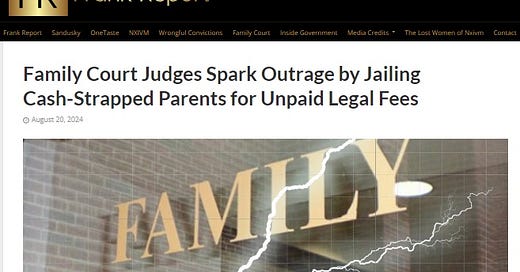





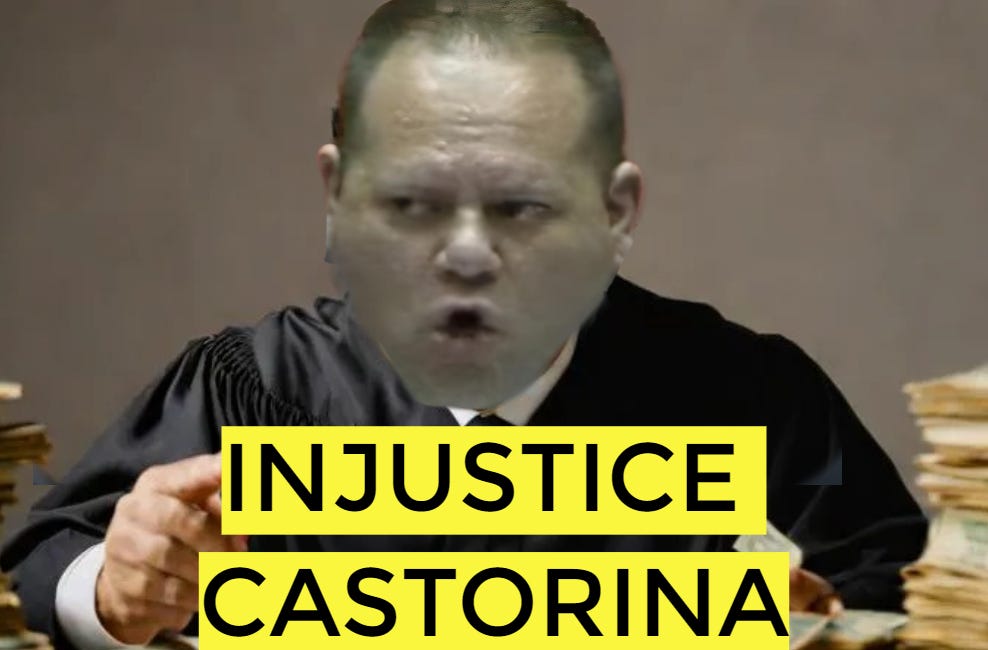








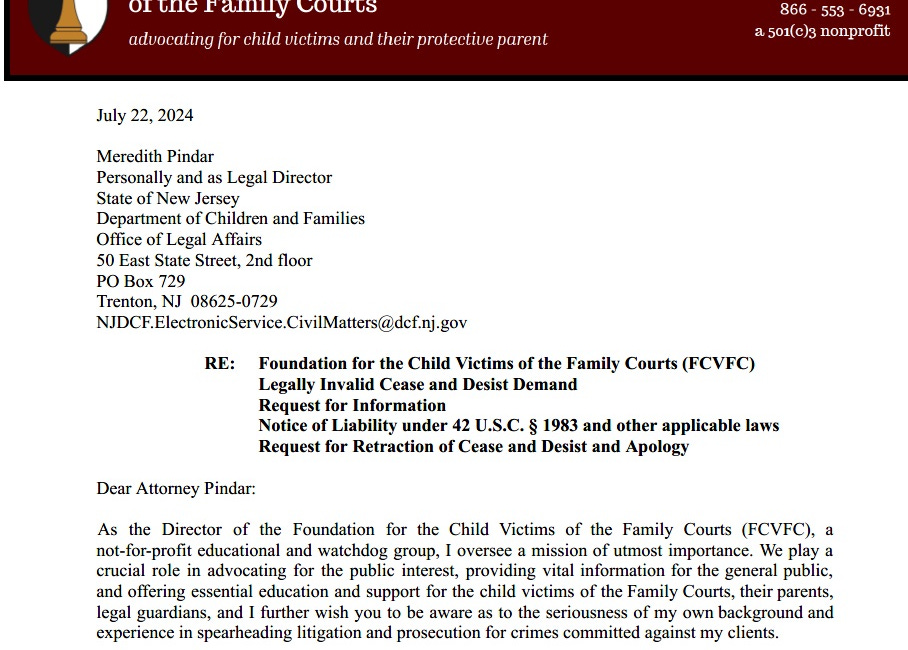

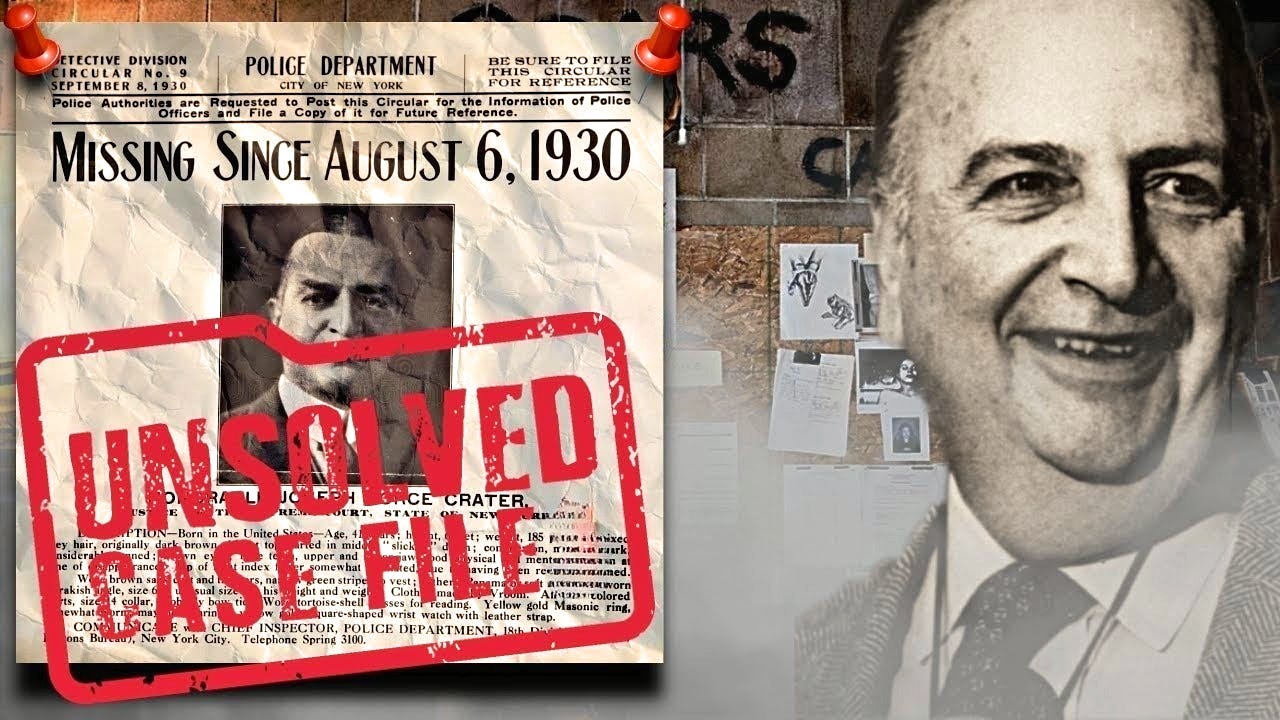
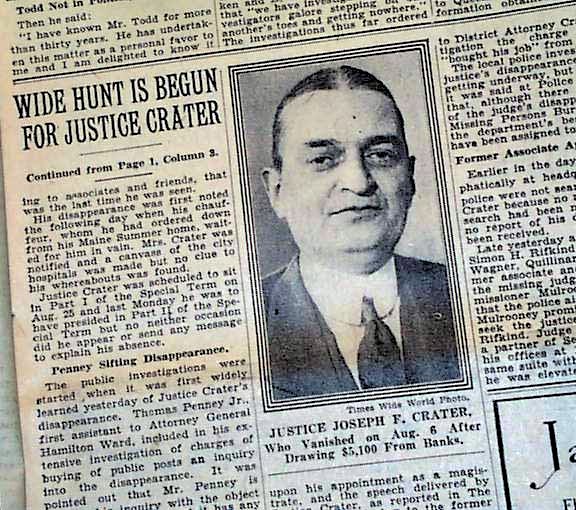









Share this post